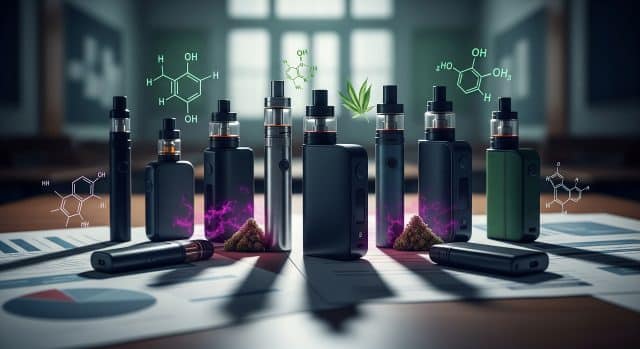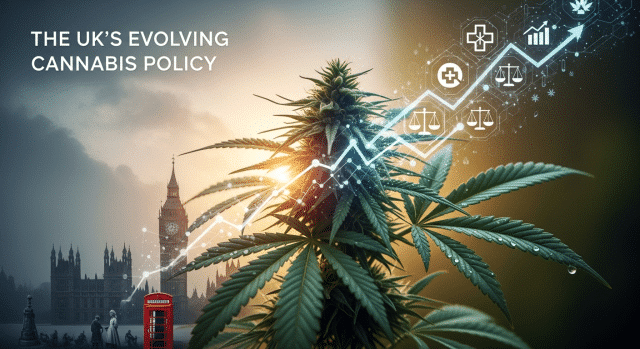THC Vapes – Vaping Crisis: From Disposable Vape Ban to Synthetic Cannabinoids
The past few years have seen an explosion in vaping products, from nicotine e‑cigarettes to cannabis oil cartridges.
While vaping was once promoted as a harm‑reduction tool for smokers, it has quickly turned into a source of concern for parents, educators and policymakers. In the UK, authorities are grappling with the rise of counterfeit “THC” vapes laced with dangerous synthetic cannabinoids, along with the environmental and health impacts of disposable vape pens. Understanding these issues is the first step toward protecting young people and creating a safer, regulated market.
The Hidden Threat of Spice‑Laced Vapes
A ground‑breaking study from the University of Bath analysed nearly 2,000 e‑cigarette cartridges confiscated from schools across England. The findings were alarming: 13 per cent of the samples contained Spice, a potent synthetic cannabinoid, and in some regions – notably London and Lancashire – the proportion rose to 25 per cent. These devices were often marketed as “THC vapes,” using brightly coloured packaging and popular strain names to entice teenagers. In reality, they contained chemicals many times more potent than natural cannabis, with unpredictable effects that can include severe anxiety, psychosis, seizures and, in extreme cases, organ damage.
What makes the situation even more troubling is the role of social media. The researchers found that many vendors operate on platforms like TikTok, Snapchat and Instagram, selling “THC” cartridges directly to young consumers. Around 70 per cent of the offending accounts identified in the study remained active despite the introduction of the Online Safety Act, highlighting the challenges of policing digital marketplaces.
Natural THC vs Synthetic Cannabinoids: Know the Difference
Natural THC (tetrahydrocannabinol) is the primary psychoactive compound in cannabis. While it can cause anxiety or paranoia at high doses, its effects are relatively predictable and well understood. Synthetic cannabinoids, on the other hand, are man‑made chemicals designed to bind to the same brain receptors as THC but with much greater potency. Sold under names like Spice or K2, these compounds can be hundreds of times stronger than natural THC. Because they’re often sprayed onto plant material or mixed into vape oils without regulation, dosing is inconsistent and the risk of adverse reactions is high.
Parents and educators should know that a cartridge labelled “THC” does not guarantee it contains natural cannabis extract. In unregulated markets, especially online, synthetic cannabinoids are cheaper to produce and easier to smuggle, making them attractive to illicit suppliers. Educating young people about the differences and risks is essential.
The Disposable Vape Ban: What It Means
In response to rising youth vaping and environmental concerns, the UK government announced a ban on all single‑use vapes effective 1 June 2025. This prohibition covers both nicotine and non‑nicotine devices, including those sold as CBD or THC vapes. Retailers are forbidden from selling or supplying disposable e‑cigarettes, and any remaining stock must be responsibly recycled. The ban aims to reduce litter, plastic waste and the temptation for minors to purchase cheap, brightly packaged pens.
The legislation also clarifies what constitutes a “reusable” vape: devices must have removable batteries and refillable pods to stay on the market. While the ban will help curb the influx of cheap counterfeit cartridges, enforcement remains a challenge. Many illicit sellers operate online or via social media, beyond the immediate reach of Trading Standards.
Semi‑Synthetic Cannabinoids and the HHC Crackdown
Another emerging issue is the proliferation of semi‑synthetic cannabinoids like hexahydrocannabinol (HHC). HHC is produced by hydrogenating natural cannabinoids and produces a high similar to THC. Because it wasn’t explicitly listed in the Misuse of Drugs Act, vendors exploited a legal grey area to sell HHC products, often in vape form. In August 2025, following recommendations from the Advisory Council on the Misuse of Drugs, the Home Office announced plans to classify HHC and its derivatives as Class B substances. Once the ban is enacted, possession and supply of HHC will attract the same penalties as illegal cannabis, closing the loophole that allowed these products to circulate.
Finding Safe, Legal Alternatives to THC Vapes
While the headlines may be daunting, it’s important to remember that not all vaping products are dangerous. When produced by reputable manufacturers and used responsibly by adults, cannabinoid vape oils can be a convenient and less harsh way to consume plant compounds. The key is transparency: consumers should always check for lab reports, clear labelling and compliance with UK regulations.
At Weed Supermarket, we’re committed to providing safe, legal cannabinoid extracts. Our extracts and isolates are oil‑soluble and can be incorporated into vape oils that meet all regulatory standards. We source our cannabinoids from licensed hemp producers, and every product is third‑party tested for purity and potency. Whether you’re making your own vape oil or looking for a trustworthy supplier, knowing the source and composition of your products is essential.
What Parents and Educators Can Do
-
Stay informed. Follow updates from trusted sources like the University of Bath, government announcements and public health organisations.
-
Talk to young people. Open conversations about vaping risks, especially the difference between natural and synthetic cannabinoids, can reduce curiosity and peer pressure.
-
Support regulation. Encourage policymakers to crack down on illegal online sellers and to develop clear, evidence‑based guidelines for legal cannabis products.
-
Choose reputable products. If you or someone you know uses cannabinoid vapes, ensure they come from established, compliant companies with transparent lab testing.
The vaping crisis is a complex issue, but with the right information and sensible regulation, it is possible to protect young people, reduce harm and foster a responsible market for cannabinoid products. If you’re looking to learn more about safe, legal extracts and isolates, we’re here to help.





